Show all entries of this category
194
Vote
This third article of reflection on the “Quintessence of Religions” is the last in a series dedicated to Ostad Elahi’s poem. After the question of “God” and that of “evil”, Leili Anvar’s commentary now invites us to reflect on the notion of the “good”. To give a “quintessential idea” of what the good is, Ostad Elahi reformulates here the two phases of the Golden Rule that determine what the theologian and philosopher Olivier du Roy defines as the “ethics of the reciprocity and fundamental intersubjectivity of man”.
Read more
163
Vote
After reflecting on the question of God and what “putting one’s faith in that One” truly means, we continue here our series on Ostad Elahi’s poem “The Quintessence of Religions” with a second excerpt from Leili Anvar’s commentary of this text, which was originally published (in French) in the proceedings of the symposium “Quelle sagesse pour notre temps ?”. This second excerpt examines the question of “evil”.
Read more
171
Vote
In his poem entitled “The Quintessence of Religions”, Ostad Elahi lays out in a few verses what he considers to be the result of a lifetime of experience. This “(quint)essential” summary brings to light, among other things, the relationship between ethical and divine principles. Leili Anvar made it the subject of a conference she gave in 2011 on the occasion of the “Day of human solidarity”, the video of which was posted on this very site. The text published in the proceedings of the symposium (Quelle sagesse pour notre temps ?) is a revised and more detailed version of her oral contribution.
Read more
185
Vote
Once we have discovered the divine ethical principles adapted to our time it is our duty to put them into practice, for only then will they nourish us and gradually become assimilated within us.
As we previously mentioned, a diet must fulfill certain criteria to be considered sound. Our physical organism, for example, requires a varied and balanced diet. Likewise, the practice of a divine ethical principle must fulfill certain conditions in order to have a positive effect on our psychospiritual organism:
(a) A divine ethical principle must be performed on a repeated basis. Only by repeatedly and persistently practicing an ethical principle will it gradually become integrated within our spiritual substance and eventually become part of our second nature. It is not by forcing ourselves to be generous on a few occasions, for example, that we can acquire the virtue of generosity; rather, we must repeatedly push ourselves to perform generous acts until the essence of generosity permeates our spiritual substance.
Read more
245
Vote
What is prayer? What role does it play in the process of spiritual perfection and what inner state does it require? These are some of the questions addressed by Bahram Elahi in Chapter 29 of The Path of Perfection, which is dedicated to prayer. Here is an excerpt.
If we envision Him as face-to-face with us while praying, we would not speak to Him inattentively.
Human beings, even those with faith, tend to forget the Source unless they are in situations of need or distress. The goal of prayer is to prevent this forgetfulness and to maintain our communication with the Source.
Read more
334
Vote
Malak Jan Nemati was Ostad Elahi’s sister, but also his most brilliant student and the most passionate one. She found in him a way to connect to the Divine, a figure of the Beloved, inspiring the images and metaphors that filled her poetry. Leili Anvar analyses the meaning of these images and metaphors in the […]
Read more
844
Vote
Why does self-knowledge matter? How and why is it connected to the practice of ethics? Elie During, Associate Professor in the Philosophy Department of the University of Paris – Ouest Nanterre, addresses these questions in an article published in a special issue of the Annals of the New York Academy of Sciences entitled “Perspectives on the Self”.
In the following excerpt, the author examines Ostad Elahi’s concept of the “imperious self”, emphasizing the importance of self-modeling in the process of self-transformation.
Read more
1987
Vote
Prayer is the most universal spiritual practice. It connects the spirit of human beings to the Divine, thus preventing them from forgetting Him. But it also enables one to revert back to oneself, to one’s true dimension, which is spiritual in nature.
Ostad Elahi practiced prayer in various forms since childhood and referred to the essential conditions of prayer many times in his works. Some of his recommendations regarding prayer can be found in Words of Faith: Prayers of Ostad Elahi, which was published on the occasion of the centennial of his birth.
Read more
1521
Vote
Ostad Elahi was born on September 11, 1895. On the occasion of his 116th birthday, it was only natural to pay him homage by reviewing some of the salient aspects of his life and works. In the preface to his translation of Knowing the Spirit (SUNY, 2006), Prof. James Morris draws from various sources, including autobiographical conversations and remarks by Ostad himself. This lively portrait of an outstanding 20th century spiritual figure manages to uncover the inner connections between the rich and varied experiences of a lifetime and the central notions of a philosophy. The following excerpt is published with the kind authorization of the author and SUNY Press.
Nūr ‘Alī Elāhī—or Ostad Elahi (“Master” Elahi), the honorific by which he is most widely known today—was born on September 11, 1895 in Jeyhunabad, a village in western Iran(1). The outward course of his life, as he described it in autobiographical conversations and remarks during his later years,(2) falls into three distinct periods: his childhood and youth, entirely devoted to traditional forms of ascetic and religious training; his active public career, for almost thirty years, as a prosecutor, magistrate, and high-ranking judge; and the period of his retirement, more openly devoted to spiritual teaching and writing (including the composition of Knowing the Spirit), when he became well known as a religious thinker, philosopher, and theologian, as well as a musician. Ostad Elahi’s own later description of those outward events, summarized in a few of his sayings quoted further on, helps bring out the inner connections between those different periods of his life and the broader lessons he was able to draw from those very different activities and experiences.
Read more
532
Vote
In this article published in december 1997 in the magazine L’Être et l’esprit, Bahram Elahi presents his conception of “natural spirituality,” reviewing its fundamental principles. “Natural spirituality” is a spirituality adapted to the very nature of man, it involves a daily practice based on what he calls “natural meditation”. “Natural spirituality” is not related to […]
Read more
Go top
Newer Entries »
|

 News
News Podcast
Podcast




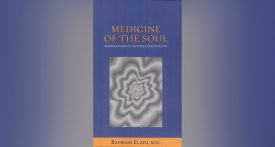

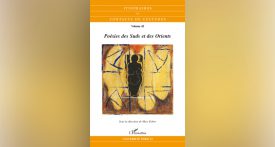
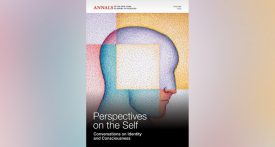
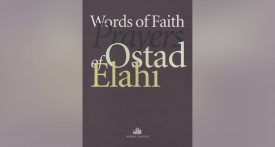
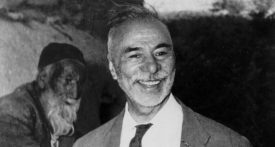


Recent Comments